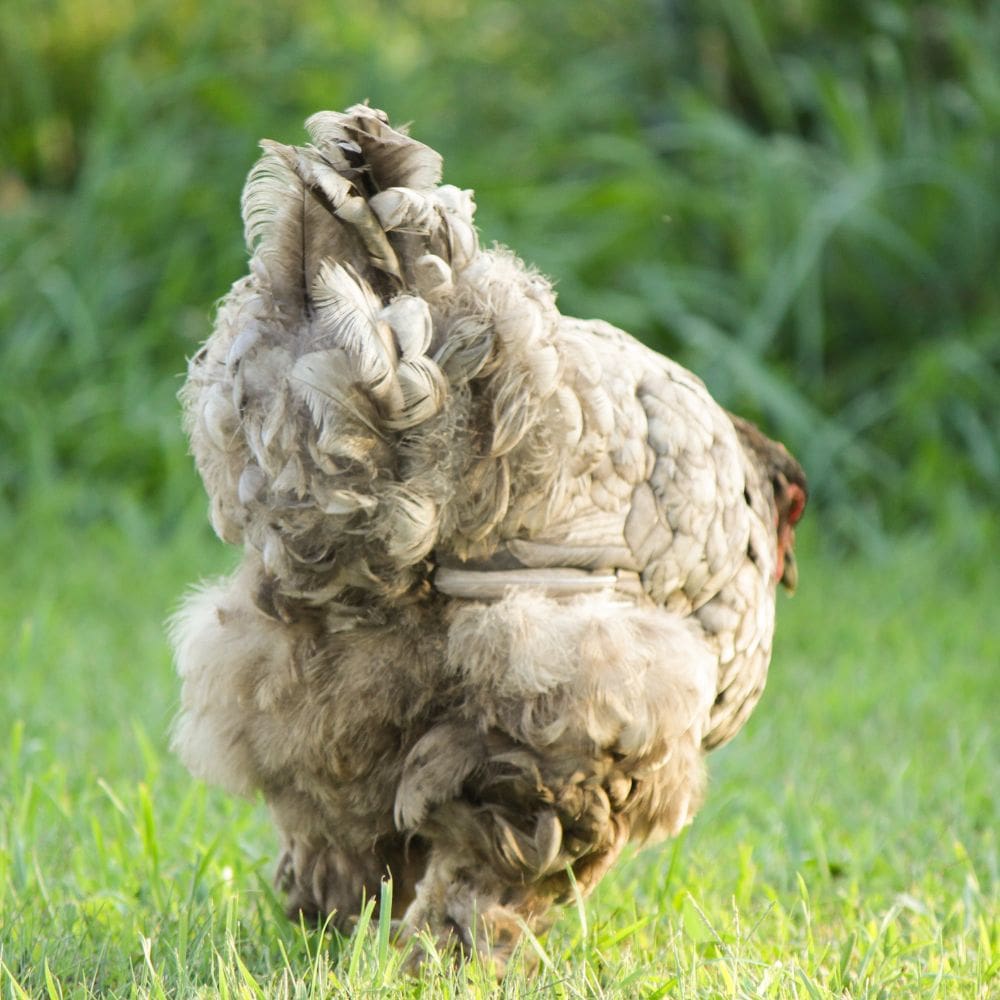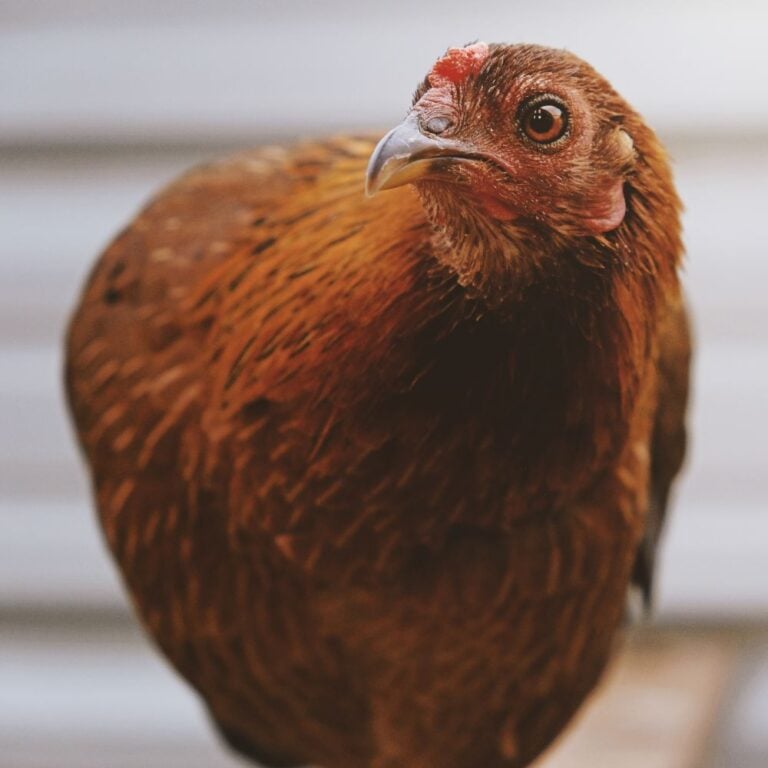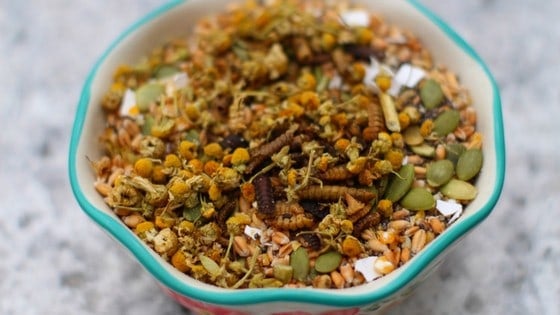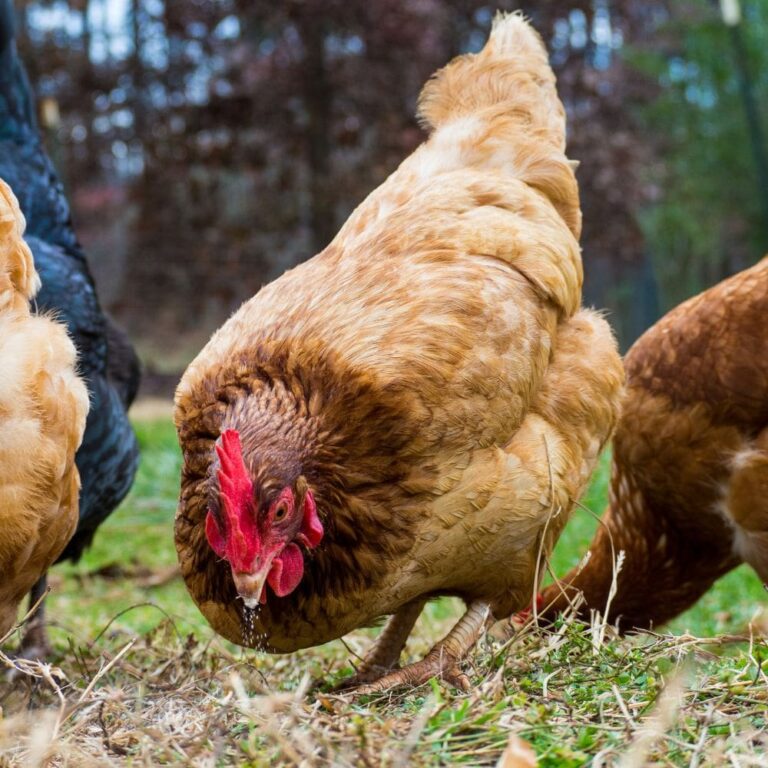Among the myriad of questions we chicken lovers ask, one query stands out as particularly amusing: Do chickens fart?
It’s a question that has the power to both tickle our funny bone and ignite our inquisitiveness. So, hop on the flatulence investigation bus and be sure to get a front row seat!
In order to properly understand this topic, we must first talk about all the sciency stuff that digestive tracts are made of. But don’t run off, this is a pretty cool science lesson if I do say so myself.

Table of Contents (Quickly Jump To Information)
Chicken Digestion
Before we embark on our exploration of whether chickens fart…pooter scooter, cut the cheese, or whatever name you call it, it’s essential to understand how these feathered creatures process their meals. Chickens possess a digestive system that differs substantially from humans (or other farm animals).
The journey of digestion begins in a chicken’s beak, where they peck at grains, seeds, grass, and insects. Following this initial maceration, the food moves into the chicken’s crop, a temporary storage compartment along the esophagus. From there, it proceeds into the stomach, divided into two sections: the proventriculus (similar to our stomach) and the ventriculus, or gizzard (a muscular grinding chamber).
Unlike mammals, chickens lack teeth for chewing, relying instead on a specialized organ called the gizzard. This muscular pouch mechanically grinds and pulverizes their food. You might want to read Do Chicks Need Poultry Grit?
After that, it’s on to the small intestine and then to the large intestines.
Another interesting read is Chicken Anatomy 101.
Fermentation in Chickens
Now, let’s talk about the magic that occurs within a chicken’s digestive system. Chickens are incapable of breaking down food material on their own (as stated above), relying instead on a symbiotic relationship with microorganisms, including bacteria and protozoa. These microorganisms take residence in the chicken’s ceca, paired pouches near the end of their digestive tract, and play a pivotal role in the process of fermentation.
During fermentation, these tiny tenants produce gases, such as carbon dioxide and methane, as byproducts of their metabolic activities. These gases, generated during the microbial ballet within the chicken’s digestive chambers, are essential for the chicken’s digestion, aiding in the extraction of nutrients from their food.
More On Gas
So, after this snapshot of chicken digestion, the central question remains: Do chickens fart? Well, it all comes down to how you define flatulence.
Traditionally, flatulence involves the expulsion of gas from the digestive system through the rectum. Humans and cows have specific exit routes for gas, allowing for the audible and sometimes fragrant phenomenon we call a fart. Chickens, however, lack a rectum or an anal opening as mammals possess (this is so embarrassing to talk about, isn’t it?).
Chickens release gas through their cloaca, a single multipurpose opening used for excretion, reproduction, and egg laying. This versatile cloacal vent serves multiple functions, which means that when gas escapes, it usually lacks the comedic flair of a human fart. Instead, it is a discreet and integrated aspect of their digestive process.
I do have to tell you something though. This does not mean that chickens NEVER make a farting sound. I’ve heard it with my own ears once or twice, so I’m a believer!
Chicken Poo
When chickens release gas, it typically occurs during their natural process of excretion. Gas produced during fermentation in the ceca exits alongside feces as part of the overall digestive process. This explains why chicken droppings sometimes contain tiny gas bubbles (or air bubbles), a sign of excess gas release.
While chicken flatulence may not (usally) manifest in the familiar manner of human flatulence, it undoubtedly plays a pivotal role in their digestion, enabling the efficient extraction of nutrients from their food. In essence, chickens have their own version of “intestinal melodies.”
Addressing Odor Concerns
The topic of odor in conjunction with chicken gas is one that raises eyebrows. While chickens don’t emit resounding farts, they can produce gases that contribute to the distinctive scent of their poo.
The foul smells of chicken manure can be attributed to various gases produced during digestion, including ammonia, hydrogen sulfide, and volatile organic compounds. These compounds can indeed give chicken manure its unmistakable and sometimes pungent aroma, especially when concentrations are high.
Chicken odors may increase if your flock is regularly eating vegetables or dairy products. They will chow down almost anything (I often compare them to pigs), but some things cause more odor than others. The ingreidents of their diet does make a difference.
For chicken lovers managing the odor of chicken manure is a critical concern. Adequate ventilation, well-planned waste management systems, and the maintenance of clean and dry bedding all serve as strategies to mitigate the odor, improving the living conditions for these feathered friends we love so dearly.
Tips To Help Your Chickens Digestion
- Feed a high-quality feed that isn’t full of filler ingredients (here is our favorite choice)
- Provide fresh, clean water every day
- Supplement their diet with vitamins and minerals
- Treat them to nesting herbs with a purpose (like Happy Tummy Herbal Treat)
- Ensure your flock has enough calcium intake (we personally like Herbal Oyster Shells)
Separating Fact from Fiction
Chickens have long been the subject of myths and misconceptions. The question of chicken flatulence is just one among many curiosities surrounding these captivating birds. As we venture into their world, let’s dispel a few other poultry-related myths:
- Chicken Intelligence: The notion that chickens are unintelligent, often labeled as “bird-brained,” is far from the truth. Scientific research has revealed that chickens possess complex cognitive abilities, including problem-solving, social learning, and even the capacity for self-recognition in mirrors.
- Headless Chickens: Tales of headless chickens running around the chicken coop are not myths but actual occurrences, albeit with a logical explanation. After decapitation, residual neural activity in the spinal cord can lead to erratic post-decapitation behavior. However, perpetual motion isn’t part of the equation. Although there is always the exception to the rule: How Mike The Chikcen Lived Without A Head (this is not normal)
- Egg Worries: The belief that consuming too many eggs raises cholesterol levels has been debunked (depending on the source). Eggs are a rich source of protein, vitamins, and minerals and can be a healthful component of a balanced diet when consumed in moderation.
Summary
So, do chickens (both hens and roosters alike) fart? In their unique way, the answer is yes. Chickens produce gas as a fundamental part of their digestive process, and it exits alongside their feces through the cloaca.
Although it lacks the theatricality of human flatulence, it’s a natural and indispensable aspect of their digestion, enabling them to efficiently extract nutrients from their food.
The next time you look at your sweet hen Gertrude, you will know that she is not always a lady of manners.

A happy wife, mother, teacher, writer, hobby farmer, lover of chickens, and contributor to Pampered Chicken Mama!






